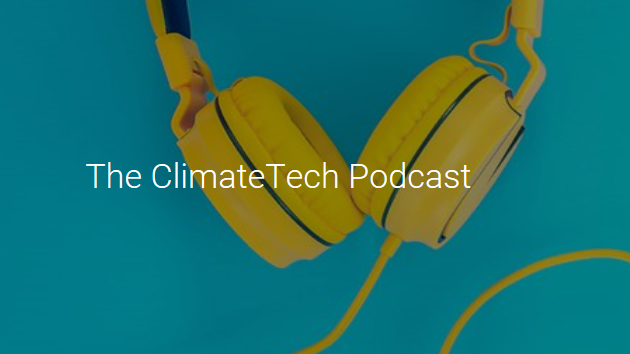April 14, 2020
Published by BC3Research Maria Jose Sanz at April 14, 2020
Categories
Berria egunkariak asteburu honetan koronabisurak munduri ekarriko dion aldaketaren inguruan gogoeta egin du. Horretarako jakintza arlo ugariko 30 aditu elkartu ditu aldaketa honek ekarriko duen mundu aldaketaren nondik norakoak izan daitezkeen esagutzeko. Aditu hauen artean BC3 - Basque Centre for Climate Change-ko zuzendari den María José Sanz aurkitzen da, COVID-19ak krisi klimatikoan izango dituen eraginen inguruan gogoeta egin du.
April 15, 2020
Published by BC3Research Anil Markandya at April 15, 2020
Categories
BC3 former director Anil Markandya participate in the The ClimateTech Podcast of UNEP DTU Partnership, a leading international research and advisory institution on energy, climate and sustainable development. In this podcast series, experts and practitioners present their views and insights on specific technologies or sectors, that can help address the climate crisis, and more importantly, how we can speed up its implementation in the developing world. The programme participate Anil Markandya, Former Director of the Basque Centre for Climate Change, Richard Klein, Senior research fellow at the Stockholm Environment Institute and Jessica Troni, Head of the adaptation unit at UN Environment
April 16, 2020
Published by Asun Rodríguez David Moreno BC3Research at April 16, 2020
Categories
Un estudio publicado en Nature Ecology & Evolution señala que un ecosistema degradado requiere una estrategia de restauración a largo plazo (de décadas o incluso siglos) para mejorar el comúnmente limitado éxito de la restauración. En el estudio han participado David Moreno-Mateos, investigador del BC3 y la Universidad de Harvard, y Asun Rodríguez-Uña, investigadora de BC3.
April 16, 2020
Published by BC3Research David Moreno Asun Rodríguez at April 16, 2020
Categories
Multiple large-scale restoration strategies are emerging globally to counteract ecosystem degradation and biodiversity loss. However, restoration often remains insufficient to offset that loss. To address this challenge, we propose to focus restoration science on the long-term (centuries to millennia) re-assembly of degraded ecosystem complexity integrating interaction network and evolutionary potential approaches. This approach provides insights into eco-evolutionary feedbacks determining the structure, functioning and stability of recovering ecosystems. Eco-evolutionary feedbacks may help to understand changes in the adaptive potential after disturbance of metacommunity hub species with core structural and functional roles for their use in restoration.
Do you like it?




